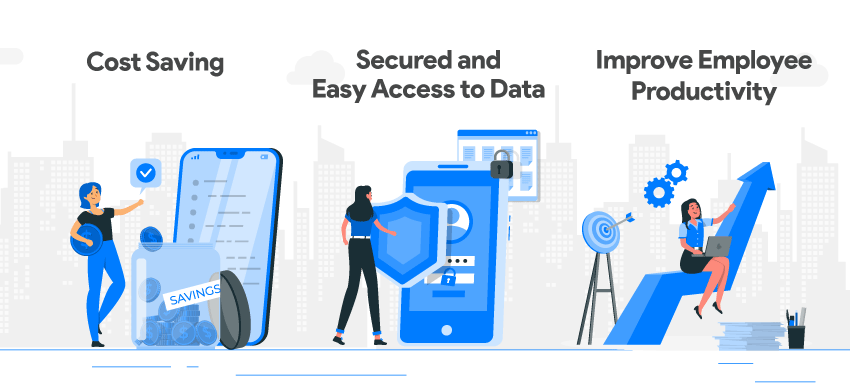Embracing BYOD: Unlocking the Potential of Bring Your Own Device
sep 12, 2023 | 42Gears Team
Over the past decade, the concept of Bring Your Own Device (BYOD) has gained significant traction across various industries and organizations. BYOD refers to the practice of allowing employees to use their personal devices, such as smartphones, tablets, and laptops, for work-related tasks.
This approach offers numerous benefits, including increased productivity, cost savings, and enhanced employee satisfaction. However, it also presents challenges that need to be carefully managed to ensure seamless and secure integration of personal devices into the corporate environment.
In this blog, we will explore the various benefits of implementing BYOD policies to boost employee productivity.

Enhanced Productivity and Flexibility with BYOD
One of the primary advantages of BYOD is the potential for enhanced productivity and flexibility. Employees are more likely to be comfortable and proficient in using their personal devices, which can lead to improved efficiency and faster response times. Furthermore, BYOD allows individuals to work from anywhere, eliminating the constraints of traditional office settings and enabling remote collaboration. This flexibility empowers employees to achieve a better work-life balance and can significantly boost job satisfaction, resulting in increased motivation and loyalty.
Cost Savings and Reduced IT Burden through BYOD Implementation
Implementing a BYOD policy can also yield substantial cost savings for organizations. Instead of investing in expensive hardware for every employee, companies can leverage the existing personal devices of their workforce. This eliminates the need for large-scale device procurement and reduces maintenance and upgrade costs. Additionally, by shifting responsibility for device support and troubleshooting to employees, the burden on the IT department reduces substantially, allowing them to focus on more critical tasks and strategic initiatives.
Security Concerns and Mitigation Strategies
While the benefits of BYOD are undeniable, it is crucial to address the security concerns associated with this practice. The use of personal devices increases the risk of data breaches and unauthorized access to sensitive corporate information. To mitigate these risks, organizations must establish comprehensive security protocols, such as implementing strong password policies, enabling device encryption, and utilizing remote wipe capabilities. Additionally, regular security awareness training for employees is essential to promote responsible device usage and safeguard against potential threats.
Ensuring Compatibility and Seamless Integration
Another challenge organizations face with BYOD is ensuring compatibility and seamless integration of personal devices into existing IT infrastructure. Different operating systems, software versions, and device capabilities can create compatibility issues, affecting productivity and hindering collaboration. Employing Mobile Device Management (MDM) solutions, like SureMDM, can help address these concerns by providing seamless and secure access to company resources, remote device wiping capabilities, and the ability to send contextual messages to employee-owned devices.
In the evolving landscape of modern workplaces, embracing BYOD can unlock a wealth of advantages for both organizations and employees. By harnessing the productivity, cost savings, and flexibility associated with personal devices, businesses can stay competitive, attract top talent, and foster a dynamic work environment. However, it is crucial to establish robust security measures and compatibility protocols to ensure a seamless integration that safeguards sensitive data and enhances overall productivity. With careful planning and implementation, BYOD can revolutionize the way we work, ushering in a new era of efficiency and collaboration.
Experience seamless device management
Subscribe for our free newsletter


